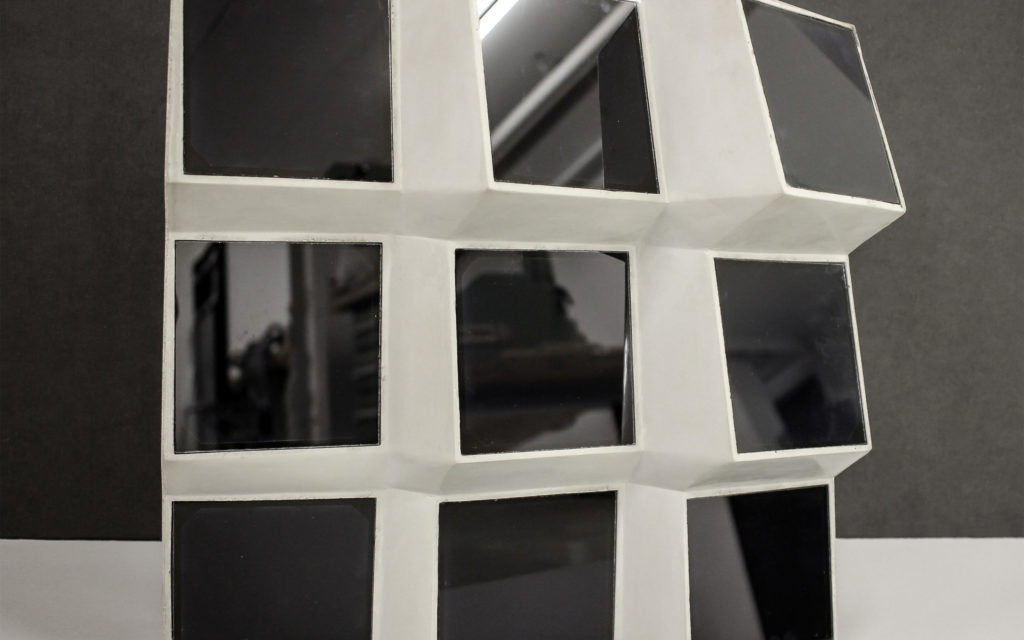From pv magazine Germany.
Germany’s Fraunhofer Center for Silicon Photovoltaics (CSP) and the University of Applied Sciences, Technology and Business (HTWK) Leipzig have developed a solar facade they claim out-performs current vertical building-integrated PV (BIPV) installations.
The German system, designed by HTWK Leipzig scientists and realized by their Fraunhofer CSP counterparts, features PV elements which can be tilted to capture more sunlight. “The photovoltaic elements that are integrated in this facade provide up to 50% more yield than planar solar modules attached to building walls,” said Sebastian Schindler, project manager at Fraunhofer CSP. “And the facade also looks good.”
The three-meter prototype features nine panels mounted in an aluminum compound.
The developers also came up with a method of integrating PV into concrete facades, particularly specially-designed carbon concrete – which absorbs carbon dioxide as it hardens, reducing its net carbon footprint.
Carbon-eating concrete
Researchers from both institutions worked with staff from the TU Dresden university on three concepts. “At the Fraunhofer CSP, we investigated how best to attach photovoltaic elements to such carbon-concrete facades – how to optimally combine the new type of concrete with the generation of solar power,” Schindler said.
One solution was to integrate the PV elements into the facade, with solar modules either poured directly into the concrete or laminated or glued to concrete slabs. However, it is also possible to attach the modules with push-buttons, screw connections or other fastening methods, making maintenance and repair work easier. “We were able to show that all three fastening options are technically feasible,” said Schindler.
A fitting solution
Ensuring the PV panels fit into the concrete was one of the challenges faced by the researchers, who also had to be careful not to screw modules into thin areas of concrete or surfaces containing carbon fibers.
The academics who came up with the design are now working on developing a commercial version under the SOLARcon: Concrete Facades 2.0 project they started in November.
In the meantime, the PV components and concrete sections of the prototype installation will be tested under different weather conditions and exposed to accelerated aging tests. Simulations are also planned to examine how the concrete and PV element connection point heat up in high temperatures and how the modules behave under high wind and pressure loads.
This content is protected by copyright and may not be reused. If you want to cooperate with us and would like to reuse some of our content, please contact: editors@pv-magazine.com.




Nice with the tilt.
But the claim for “carbon-eating concrete” is questionable. All concretes based on Portland (burnt lime) cement absorb CO2, but far less than emitted when the cement is produced. You have to look at the full life cycle.
There are other facade materials such as glass, wood or stone that hardly emit CO2. There are other cements, such as geopolymers and magnesium cements for concrete that at least emit much less than standard concrete.
Great job